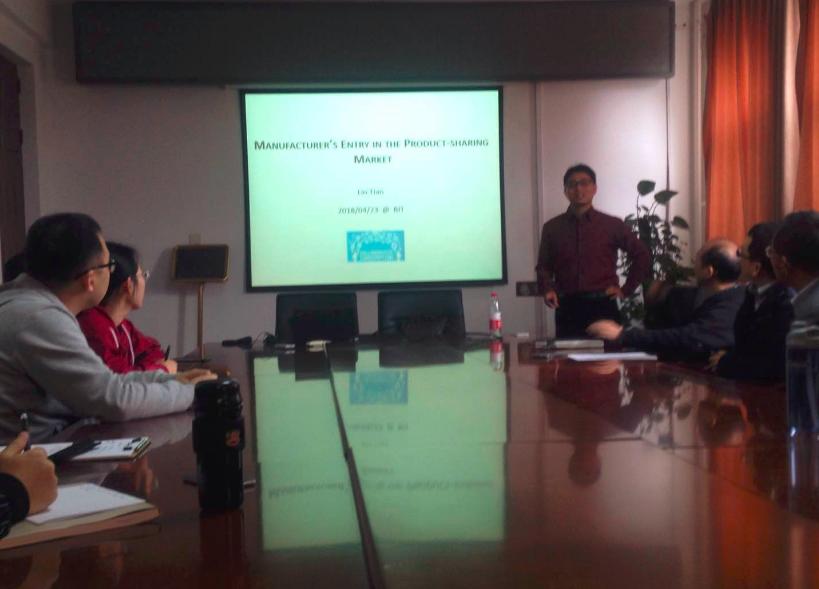At 10 o'clock on April 23, 2018, the School of Management and Economics of Beijing Institute of Technology invited Assistant Professor Tian Lin from Shanghai University of Finance and Economics to hold an academic report titled "Manufacturer's Entry in the Product-Sharing Market" in Room 418 of the main building.

Professor Tian Lin graduated from Huazhong University of Science and Technology with a bachelor's degree,and received his PHD in Fudan University. The main research interests are: sharing economy (collaborative consumption), e-commerce platform model, operation management and marketing crossover studies. The research results are published in well-known international and domestic journals in the fields of Management Science (2 articles), Marketing Science (1 article), Production and Operations Management (1 article), Journal of Management Science, Marketing Science, and other fields of operations management and marketing.
The report was mainly based on the recent research results. Dr. Tian Lin introduced the background of this report from the actual status quo. Then an analytical framework was developed to study the optimal entry strategy of manufacturers in the product sharing market and the economic impact of their entry. The results of the research indicate that when the transaction cost of C2C sharing is low and the manufacturer's marginal production cost is not very high, it is not the best choice for manufacturers to provide leasing services to consumers. On the contrary, when the transaction cost of C2C sharing is high or the manufacturer's marginal production cost is high, manufacturers should provide enough products for leasing to squeeze out the C2C market. When the C2C shared transaction cost and the manufacturer's marginal cost are both in the middle range, the manufacturer's rental service and C2C sharing will coexist. In this case, the total amount of products that manufacturers enter into the product sharing market has decreased, but it has increased consumer surplus and social welfare. In the end, Teacher Tian answered the questions of classmates and teachers. Everyone expressed that they had benefited greatly.





